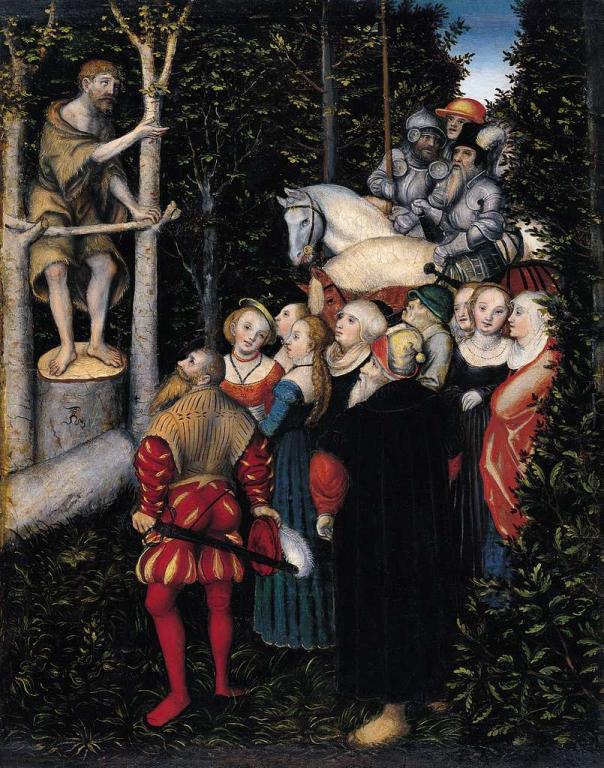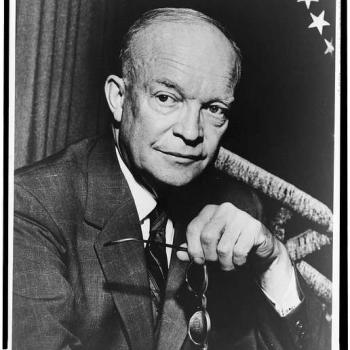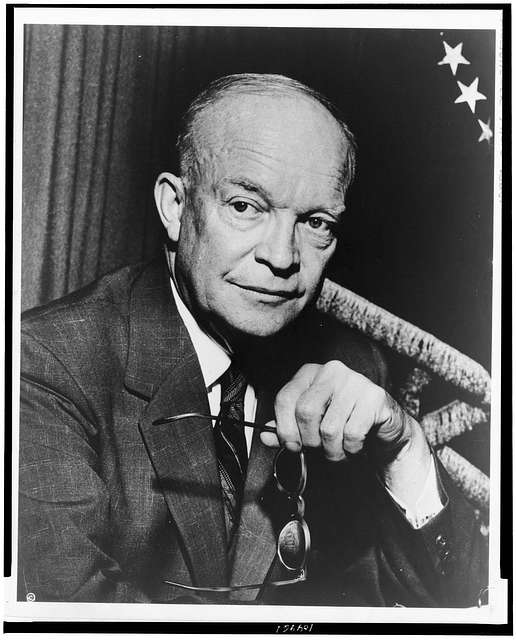President-elect Donald Trump’s nominations for cabinet posts, which must be deliberated by the Senate, raise issues about vocation. We can consider their beliefs and qualifications. But do they have a vocation for the job?
In his first term, Trump, who had little experience in Washington, depended on mainline Republicans to propose his cabinet members, who, in turn, often thwarted his policies and when they were ousted, wrote nasty books about him. So this time Trump is picking personal friends and loyalists. He also wants to deal with the entrenched professional bureaucracies that make up most federal agencies and stay in their jobs no matter who heads the Executive Branch. So Trump is also favoring nominees who would disrupt the status quo.
Trump himself didn’t have conventional qualifications to be president–he does now, after four years on the job–so he isn’t stressing conventional qualifications for his nominees either.
Still, as Trump must know from his business days, successful candidates must have more qualifications than personal loyalty and having been on TV. The question is, can they do the job?
Often, candidates are put forward mainly because of their beliefs. This happens in politics and also in Christian institutions, as well as other ideologically-committed organizations. In those cases, it is essential that the candidate has the right beliefs in accord with the mission of the institution. That’s the foundational requirement. But it isn’t enough.
In hiring a professor for a Christian college, the candidate’s orthodoxy, in my mind, is absolutely necessary. But then the question must arise, can this candidate teach? If not, the professor’s orthodoxy will do the students little good, and a bad teacher may even turn them against it.
Help me think through these nominations and whether these candidates should receive the call to serve in these offices. . . .
Attorney General
At first, President-elect Trump nominated Rep. Matt Gaetz to be Attorney General. He had the right MAGA beliefs, personal loyalty, and a reputation for being a disrupter. But he was probably the most disliked person in Congress even in his own party and even among fellow right wingers. It wasn’t just that he torpedoed the speakership of Kevin McCarthy, which others approved of. He kept the Republicans from unifying around anything, making their close majority pretty much useless. But it wasn’t just that. His personality and his character were obnoxious. Oklahoma senator Markwayne Mullin is as arch conservative and as MAGA as they come, but he was repelled by Gaetz’s practice of bragging about his sexual exploits–to the point of showing videos–to his colleagues on the House floor. And he was under investigation by the Department of Justice that he would supervise and by the House Ethics committee of having sex with a minor. And not only that: Gaetz was up for Attorney General, even though he had no background in law enforcement or prosecution, and hadn’t really even practiced law, having gone from law school straight into politics.
Upon his nomination, Gaetz immediately resigned from the House, which kept the Ethics report from being released. But when it became evident that he would never get confirmed, he withdrew his name from consideration. Whereupon Trump nominated Pam Bondi. She had served as Trump’s lawyer during his impeachment and had the requisite loyalty and beliefs. But she also had many years of experience as a prosecutor and served two terms as the Attorney General of Florida. She is much worthier to be called to serve in that high office.
Health and Human Services
Robert F. Kennedy, Jr., was nominated to be the Secretary of Health and Human Services. His background, in addition to being a scion of the fabled Kennedy family, is as an environmental and health activist. He is a longtime progressive Democrat who ran for president in that party, then, after the party put the kibosh on his candidacy for running against President Biden, ran as an Independent. And when that effort was going nowhere, he threw his support to Donald Trump.
That helped Trump, and it may be that Health and Human Services was the price of his endorsement. That’s not wrong, as such. Political patronage is a long and storied tradition in politics, though it has often gone wrong. But a political progressive who endorses Trump remains a political progressive.
Kennedy is a pro-abortion extremist. He has stated his support not just for late-term abortion but for full-term abortion! He was so extreme that his own running-mate, Nichol Shanahan, made him walk that back, changing his platform to approving of abortion up the point of viability outside the womb. But still, Health and Human Services would supervise the government’s abortion policies.
Kennedy is also a supporter of socialized medicine, extreme environmentalism, and nanny-state measures to dictate what Americans eat. He remains a progressive, not a conservative in any of its many senses. Even if we accept his populist approach to health care, including vaccine skepticism and alternative medicine, we might want to think twice about putting him in charge of the the largest department in the federal government that spends one-fourth of the government’s budget.
Secretary of Defense
Pete Hesgeth as the Secretary of Defense might work. The Fox News commentator is a decorated combat veteran who served as a captain in the National Guard in both Iraq and Afghanistan, retiring at the rank of major. He has been a strong critic of the current Pentagon establishment for its woke policies and other deficiencies. I can see that putting someone who has fought on the front line in charge of the top brass would be a much-needed morale booster to America’s troops.
His nomination, though, has been met with charges that he sexually assaulted a woman. The police report seems to vindicate him, but I am still troubled at the defense made by men who are so accused–Hesgeth, Gaetz, also Kennedy, and, yes, Trump–that the sex was “consensual,” as if adultery and fornication are not a big deal in themselves. How can we trust those who do not keep their marriage vows to keep their oaths of office?
Other Nominations
Then there is Linda McMahon, former CEO of World Wrestling Entertainment, the scripted sports venture founded by her husband Vince. She has been nominated for Secretary of Education. She has no education experience, other than briefly being on a state school board, and yet she might be able to handle the department’s bureaucracy, having served in Trump’s first term as Administrator of the Small Business Administration.
Trump nominated South Dakota Kristi Noem to be Director of Homeland Security. Federalist editor Joy Pullman cites her history of caving on transgender issues and concludes, in an article with this title, Kristi Noem Isn’t Courageous Enough To Be Trump’s Homeland Security Secretary.
Trump nominated former Democratic congressional representative and presidential candidate Tulsi Gabbard as Director of National Intelligence. Nicky Haley accuses her of being a “Russian, Iranian, Syrian, Chinese sympathizer.” Haley, Trump’s primary foe, is quoted in Politico:
“She opposed ending the Iran nuclear deal. She opposed sanctions on Iran. She opposed designating the Iran military as terrorists who say death to America every single day,” Haley said on SiriusXM’s Nikki Haley Live. “She said that Donald Trump turned the U.S. into Saudi Arabia’s prostitute. This is going to be the future head of our national intelligence.”
Trump nominated TV doctor Dr. Mehmet Oz to be the administrator of the Centers for Medicare and Medicaid Services (CMS). Is running an agency like that really his skill set?
In general, I believe presidents should have the team they want. Many of Trump’s picks, such as Marco Rubio for Secretary of State, strike me as good choices. But Senators have, as part of their vocation, the responsibility to “advise and consent” when it comes to approving nominations, as opposed to just giving their blind approval.
Photo: Robert F. Kennedy Jr. and Donald Trump by Gage Skidmore from Surprise, AZ, United States of America, CC BY-SA 2.0 <https://creativecommons.org/licenses/by-sa/2.0>, via Wikimedia Commons



















